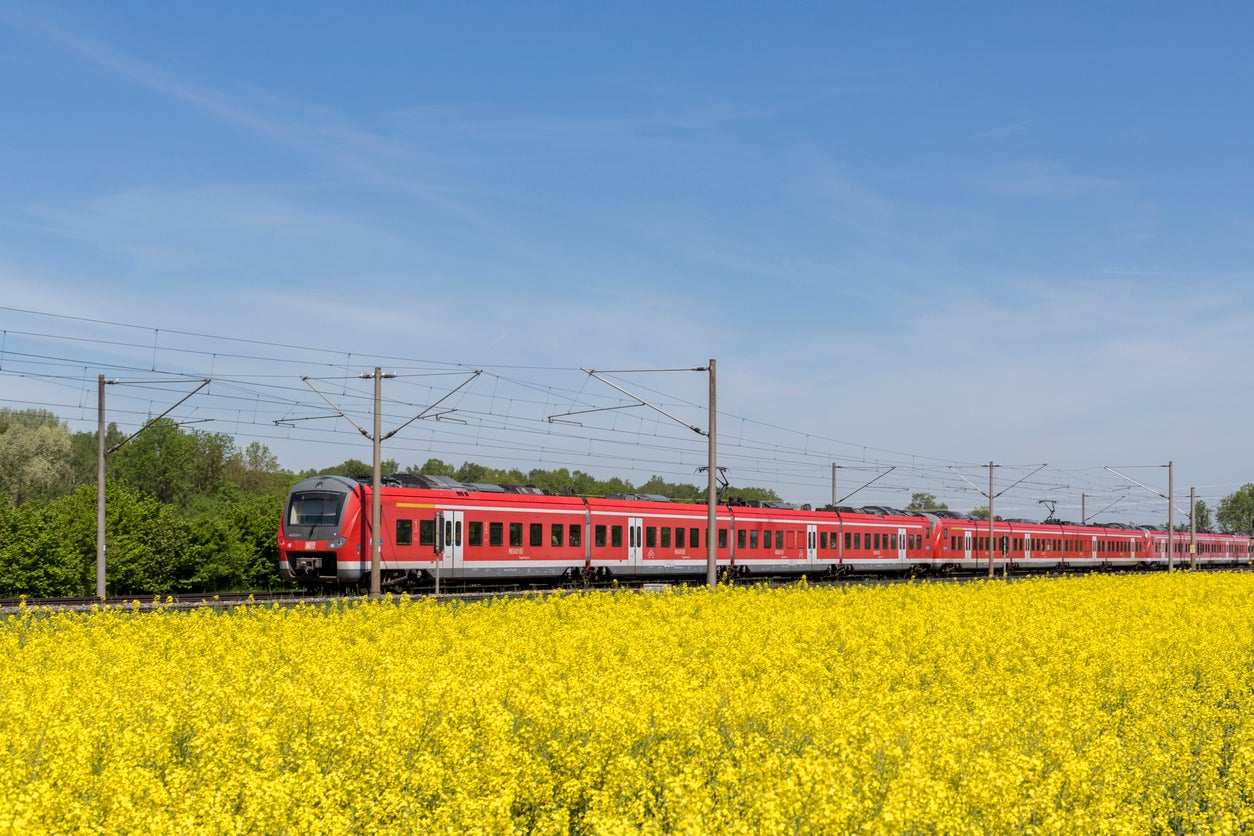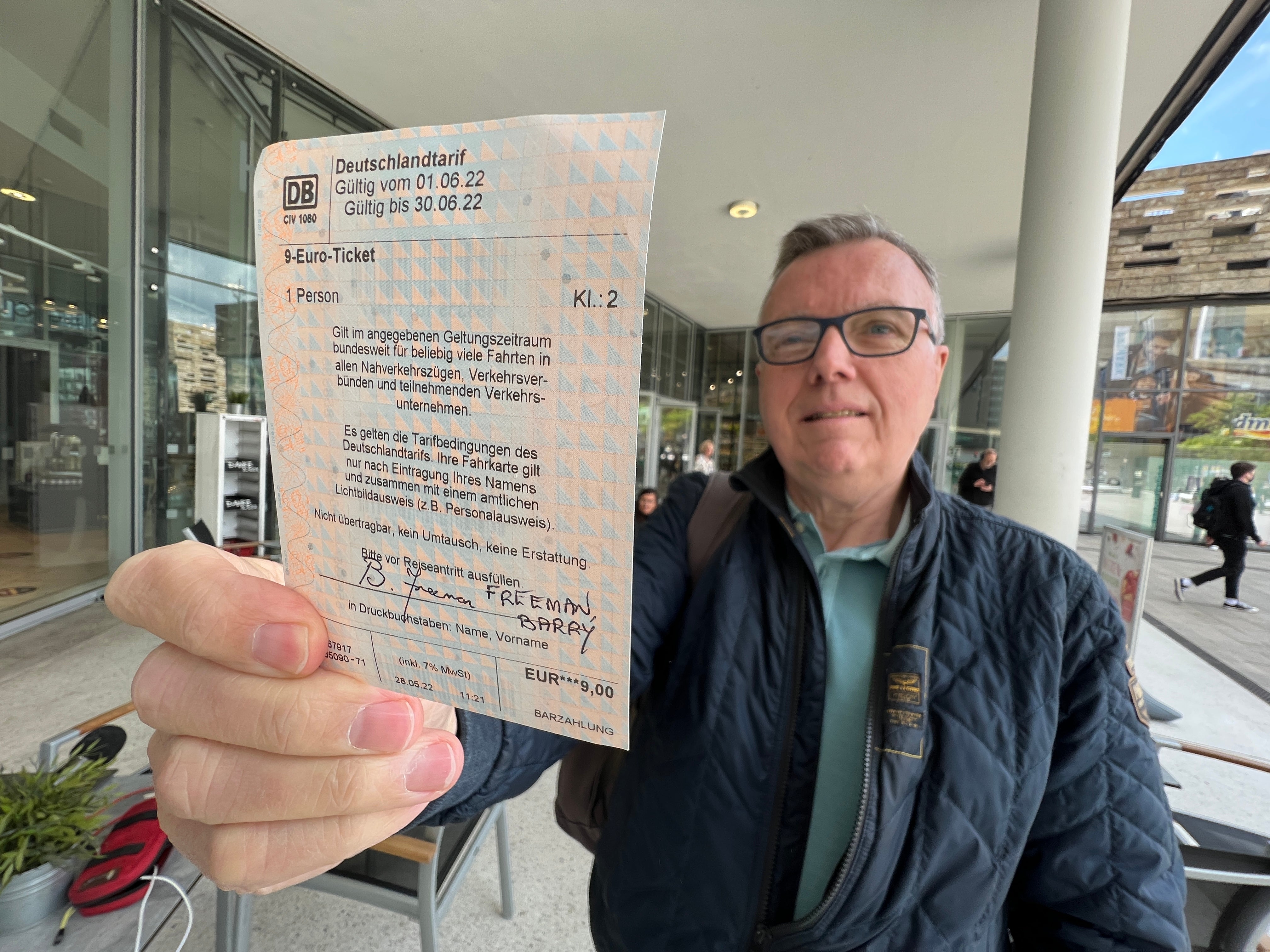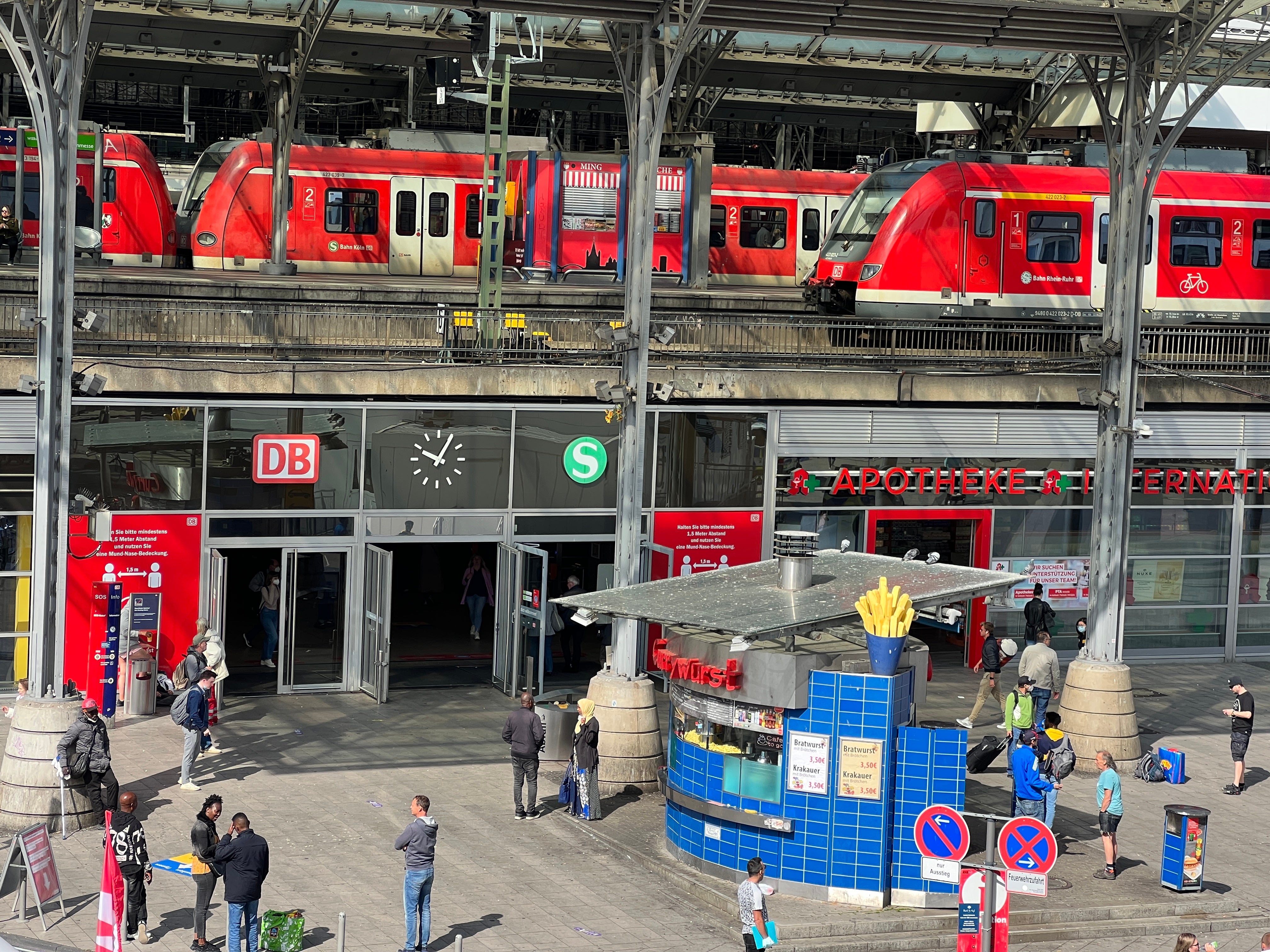The best rail deal in history? You can now travel around Germany by train for a month – for just €9
Ticket also covers urban public transport, including buses, trams and even some river ferries

Rail passengers across Germany – as well as British visitors – are flocking to take up arguably the best public transport deal in history.
For the month of June, the “9-Euro-Ticket” allows unlimited travel anywhere in the nation for a one-off payment of €9, equivalent to £7.
The month-long pass costs £1 less than a one-way ticket for the 11-minute journey from Bristol to Bath on GWR in the UK, and works out at just one penny per hour for the whole month.
The €9 pass allows 30 days of journeys on Deutsche Bahn (German Railways) trains, as well as local transport by tram, bus, U-Bahn and even some river ferries.
However, it is nicht gültig – not valid – on intercity expresses classed as IC, ICE and EuroCity, nor on privately operated services such as Flixtrain and Thalys. Even so, any two stations within Germany can be connected with the deal.
Barry Freeman, a British man who lives in the Netherlands, used his ticket to travel to Wuppertal in the Ruhr, followed by dinner in Dusseldorf.
“These spontaneous trips are fantastic,” he said. Advance bookings are neither necessary nor possible.
“I had my ticket checked on the train, I showed my passport and there was no problem at all,” he added.

The one-month ticket – which is to be repeated in July and August – has been backed with billions of euros by the German government. The aim is to entice people back to public transport after passenger numbers dropped during the coronavirus pandemic, and help cope with the nation’s cost of living crisis.
One of the participating transport authorities said: “As part of the relief package planned by the federal government in view of the rising energy costs, a special offer for local public transport is planned.”
The €9 ticket is likely to divert travellers away from Deutsche Bahn’s premium express services, with passengers prepared to spend twice as long to cross the country on regional express trains – usually involving multiple changes.
Nicky Gardner, co-author of Europe by Rail, said: “With just two changes of train, it’s possible to travel with regional services from either Leipzig or Dresden to the Bavarian Alps.
“Mind you, it’s a nine-hour journey. But at just €9 no one will complain. Normally, one would expect to pay over €80 for that long trip.”
The offer will also boost tourism, providing unlimited opportunities to explore Germany for next to nothing.
Michelle and David Sinclair travelled from their home in Bognor Regis in Sussex to Cologne by Eurostar and connecting trains.

Ms Sinclair said: “A lot of what puts people off travelling by train in the UK is the price.”
She described the German initiative as “an investment because people spend in other ways when they’re coming here”.
Passengers who have invested in Interrail passes with the intention of exploring Germany may be disappointed, but they can use the intercity expresses without supplement.
There are fears that the offer may prove too popular, with trains and local public transport becoming overcrowded.
“The first test might be this coming weekend,” Mr Freeman said. “It’s Whitsun weekend.”
But he was optimistic that other governments, including the Dutch, may emulate the German move.
“It seems to be that whatever Germany does, the Netherlands follows.”
Two years ago, Luxembourg abolished all fares for public transport. Passengers can combine the Grand Duchy with the €9 ticket, further extending its reach.
Join our commenting forum
Join thought-provoking conversations, follow other Independent readers and see their replies
Comments
Bookmark popover
Removed from bookmarks